Complimentary worldwide shipping on orders over $400 · No import tariffs for most countries
Complimentary worldwide shipping on orders over $400 · No import tariffs for most countries
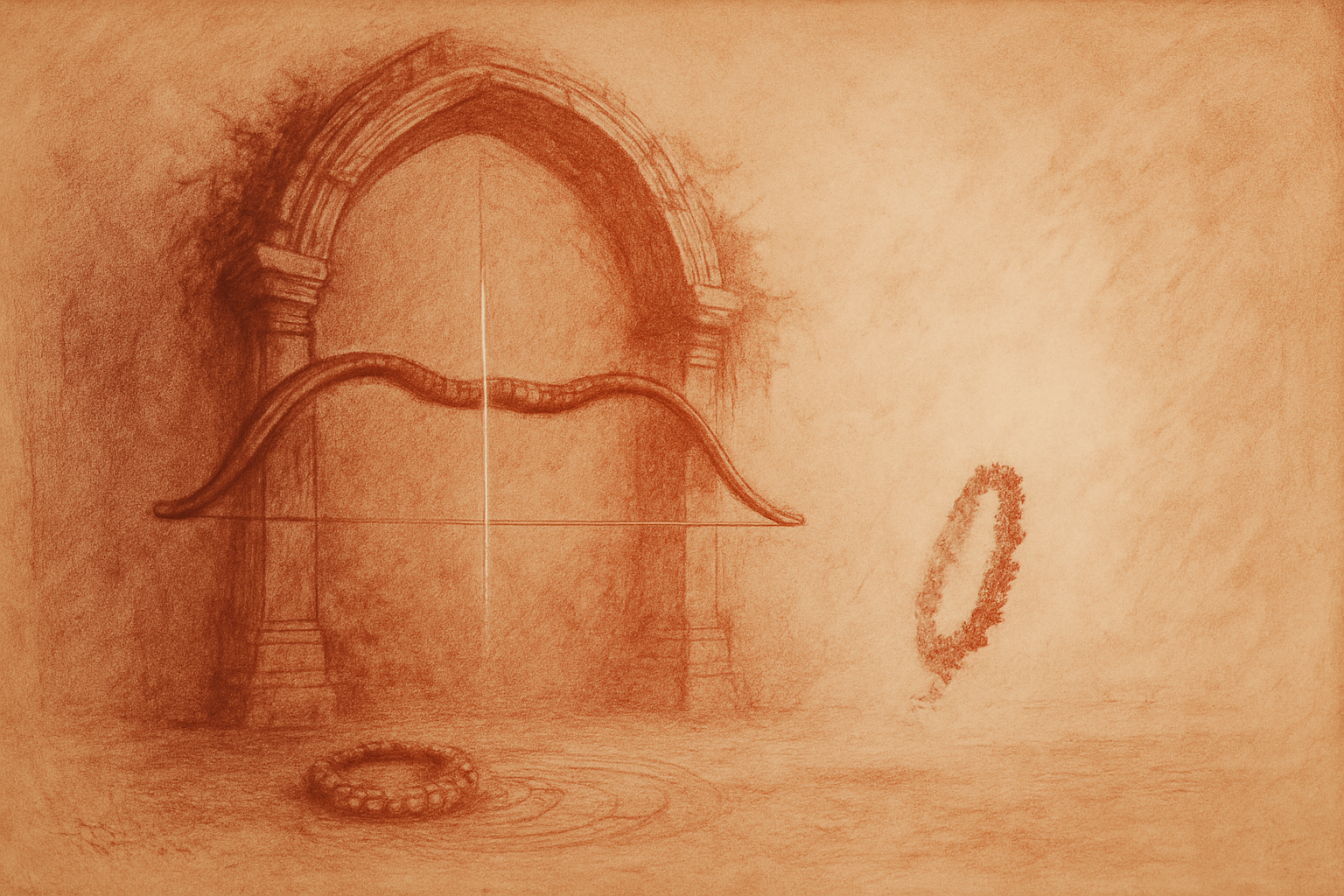
The Trial of the Bow
When the World First Held Its Breath
A tale from the Ramayana, retold for The Serpent and the Star
—
They say it happened in the court of King Janaka, beneath garlands of flameflower and the hush of gathered gods. But I remember it differently.
I was not there in body—not seated among the princes, nor among the women with their fingers pressed to their lips. But I was there in the hush. In the breath between the string and the silence. In the moment before the bow remembered who it had been waiting for.
And so I will tell you what I saw.
—
The bow had a name older than kingdoms.
It was not a weapon. It was a threshold.
To bend it was not to conquer—but to become.

It stood upright in the hall like a pillar of silence. Two men could barely carry it. They say it was the bow of Shiva himself—gifted to Janaka when the kingdom still trembled with prayers and the winds carried incense instead of dust.
Many had tried to lift it. Some had whispered mantras. Others had shouted war cries. One prince bled from his palms and wept—not from pain, but from shame. The bow did not move.
And Sita watched.
She was not adorned like the others that day. No jasmine crown. No silvered anklets. Just a simple saffron scarf, wrapped twice about her shoulders.
But her stillness held the room like fire holds a lantern.
Her eyes had the patience of stone—of riverbeds that remember the stars.
She said nothing. But her breath deepened when he entered.
Rama. Son of Dasaratha. Prince of Ayodhya.
Not the tallest. Not the loudest.
But the only one whose silence met hers.
He stepped forward without flourish. His brother Lakshmana moved beside him like a shadow that had learned to breathe.
And for a moment, all the gold and chatter and perfume of the court vanished. It was as if the room had been carved into stillness just to witness this.
No one exhaled.
—
Rama did not grip the bow with pride. He placed his hand upon it as one touches a sleeping tree.
And the bow, in turn, remembered who it had been waiting for.

It rose.
Some say he strung it in one smooth motion. Others claim it cracked with thunder when it bent to his will.
But I tell you this: the string made no sound.
The bow sang, yes—but inwardly. A vibration passed through the stones of the hall. Through the bones of the ancestors. Through Sita’s ribcage. Through mine.
The moment passed like a bell struck beneath water.
And she looked at him.
Not with surprise. Not with wonder.
But with recognition.
The kind of gaze that says: There you are. I knew you would come. But I had to wait for the silence to know your name.
—
Janaka spoke, but no one heard him. Trumpets sounded, but they could not reach the moment.
Rama bowed, and the bow unstrung itself.
And Sita, daughter of furrowed earth, stepped forward as though answering a song that had waited lifetimes to be sung.
When she placed the garland around his neck, it was not the gesture that mattered. It was the space between them. The way the garland did not fall. The way time seemed to lean inward.

Even the gods turned their faces away, as if to give the moment back to them.
—
That is how it happened.
Not as a contest. Not as a conquest.
But as the world holding its breath—so that recognition could take form. So that devotion could remember its shape. So that one string could stretch across the threshold of all things, and find itself answered in silence.
—
Some say the bow was broken that day. Others say it returned to the stars.
But I know this: wherever a soul waits in silence for its mirror—
there, the bow still sings.
—
Also in Library
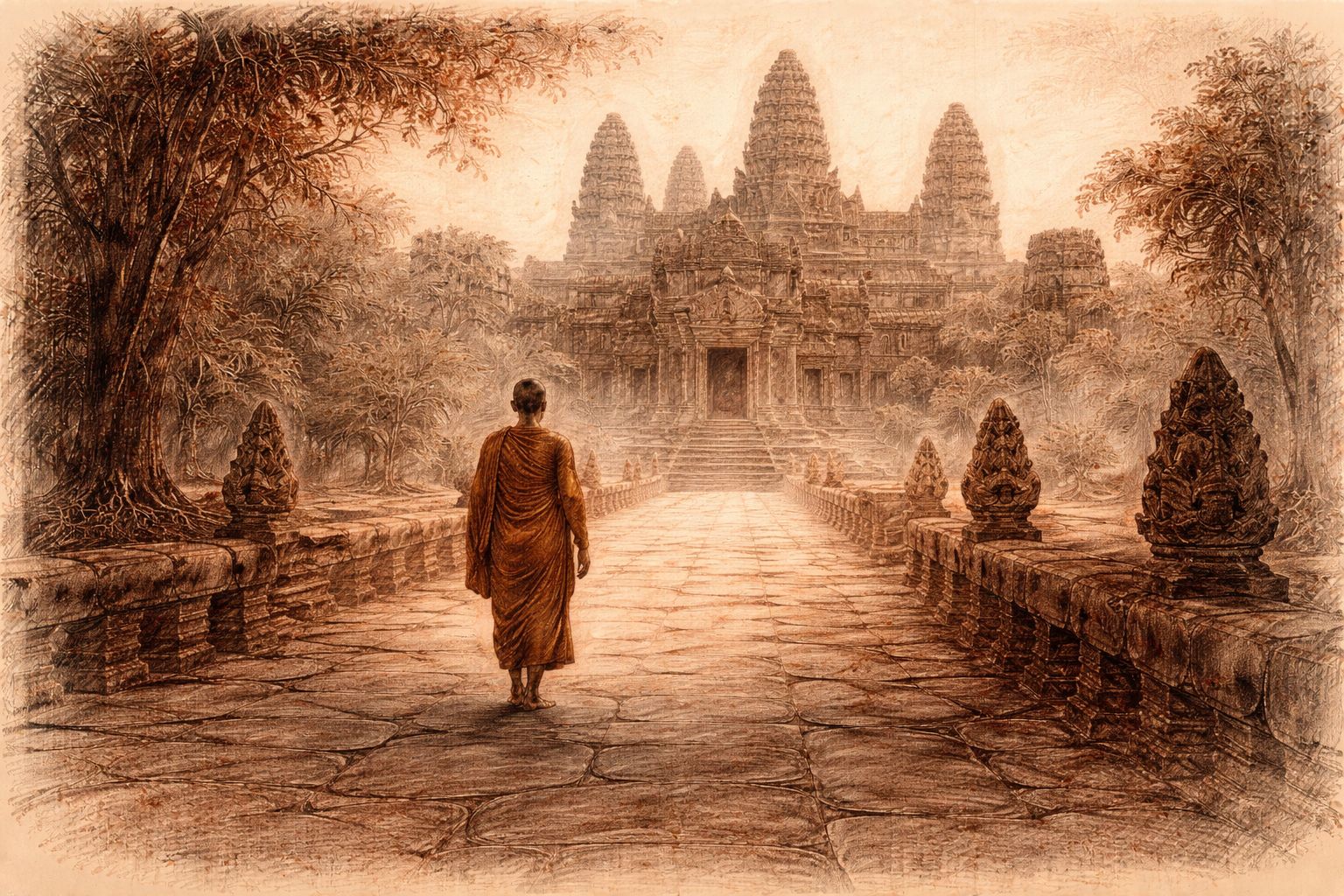
From Mountain to Monastery
2 min read
Angkor Wat survived by learning to change its posture. Built as a summit for gods and kings, it became a place of dwelling for monks and pilgrims. As belief shifted from ascent to practice, stone yielded to routine—and the mountain learned how to remain inhabited.
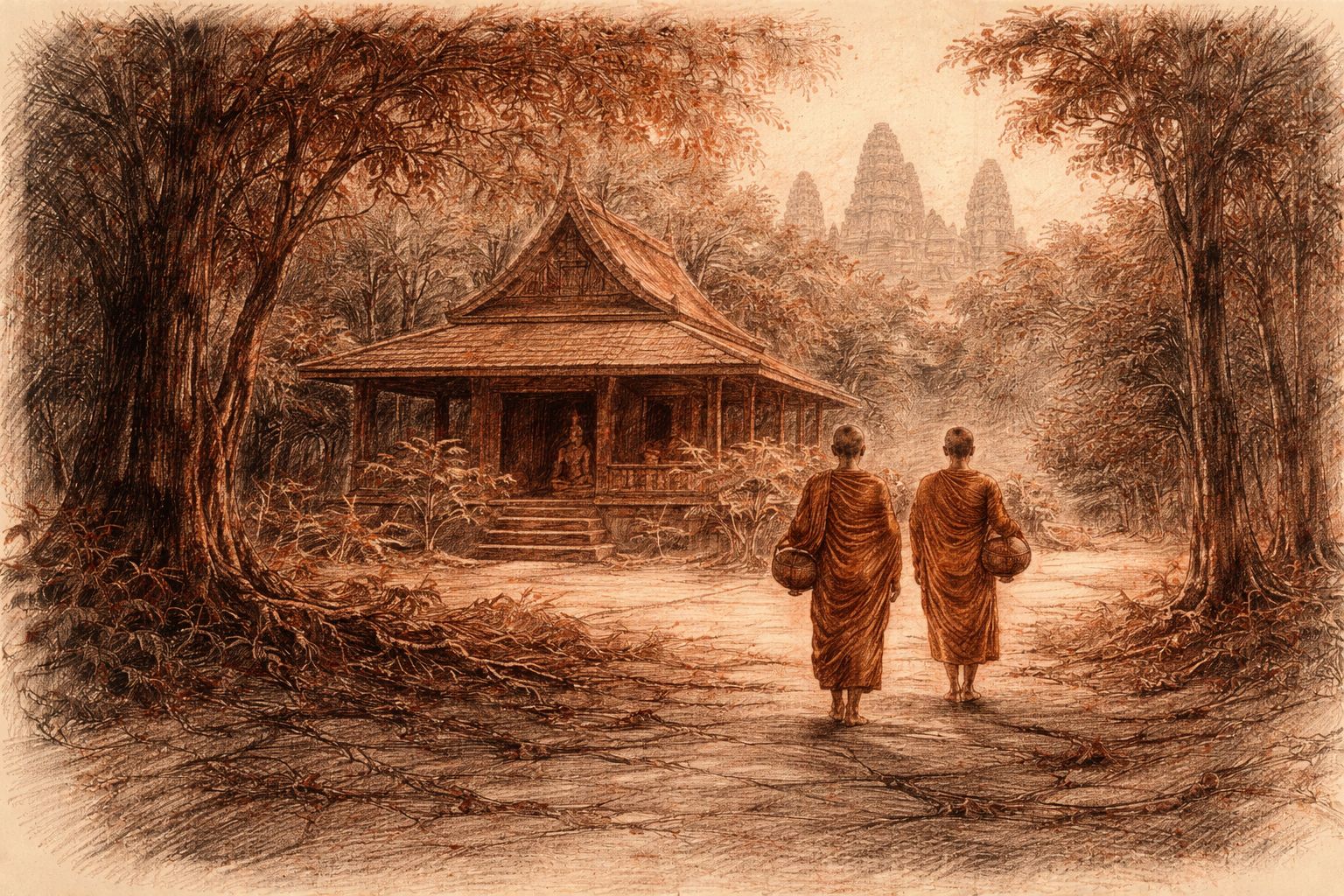
Why Theravada Could Outlast Stone
2 min read
Theravada endured by refusing monumentality. It shifted belief from stone to practice, from kings to villages, from permanence to repetition. What it preserved was not form but rhythm—robes, bowls, chants, and lives lived close together—allowing faith to travel when capitals fell and temples emptied.
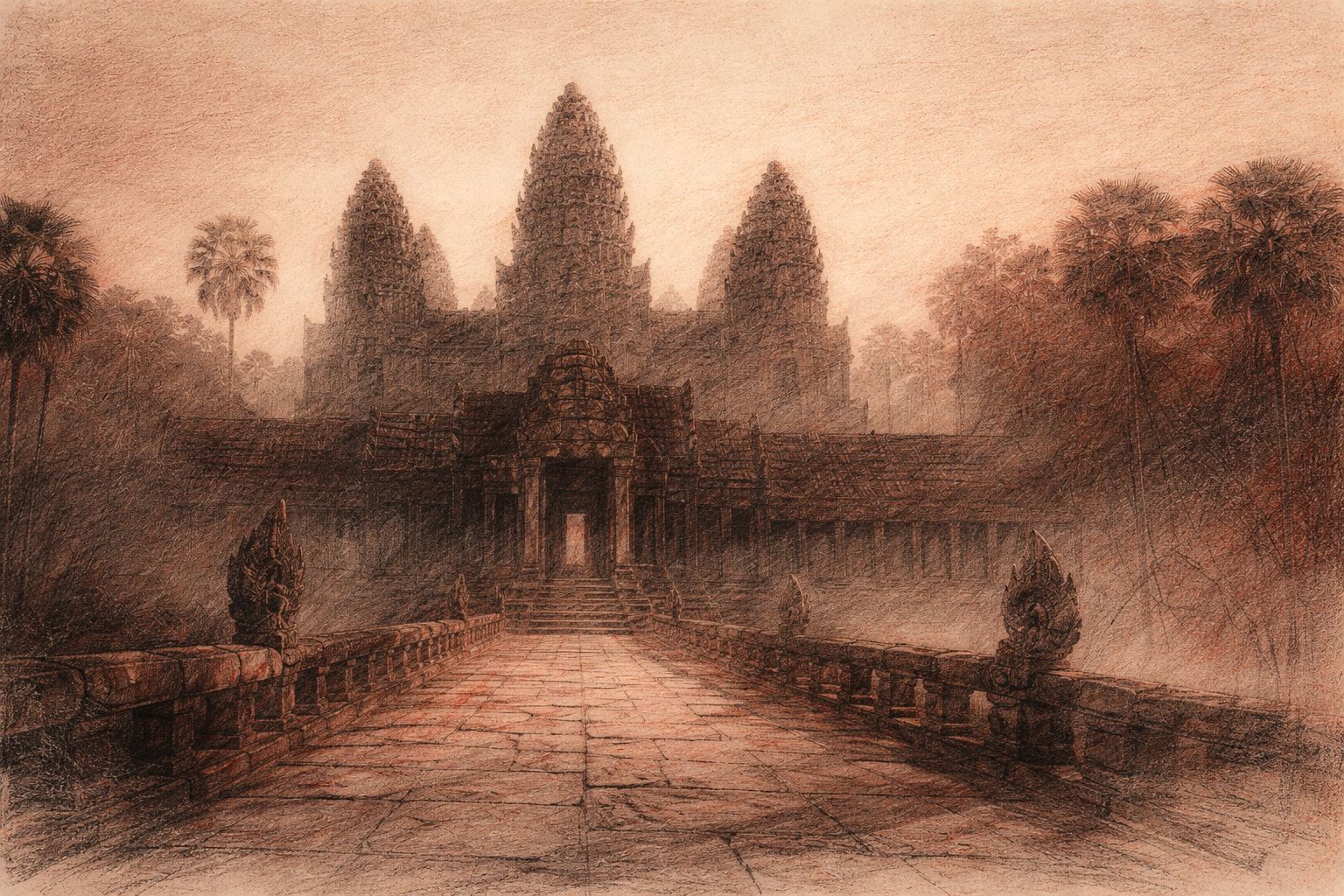
The End of Sanskrit at Angkor
2 min read
The final Sanskrit inscription at Angkor does not announce an ending. It simply speaks once more, with elegance and certainty, into a world that had begun to listen differently. Its silence afterward marks not collapse, but a quiet transfer of meaning—from stone and proclamation to practice, breath, and impermanence.
Join My Studio Journal
Receive occasional letters from my studio in Siem Reap—offering a glimpse into my creative process, early access to new fine art prints, field notes from the temples of Angkor, exhibition announcements, and reflections on beauty, impermanence, and the spirit of place.
No noise. No clutter. Just quiet inspiration, delivered gently.
Subscribe and stay connected to the unfolding story.
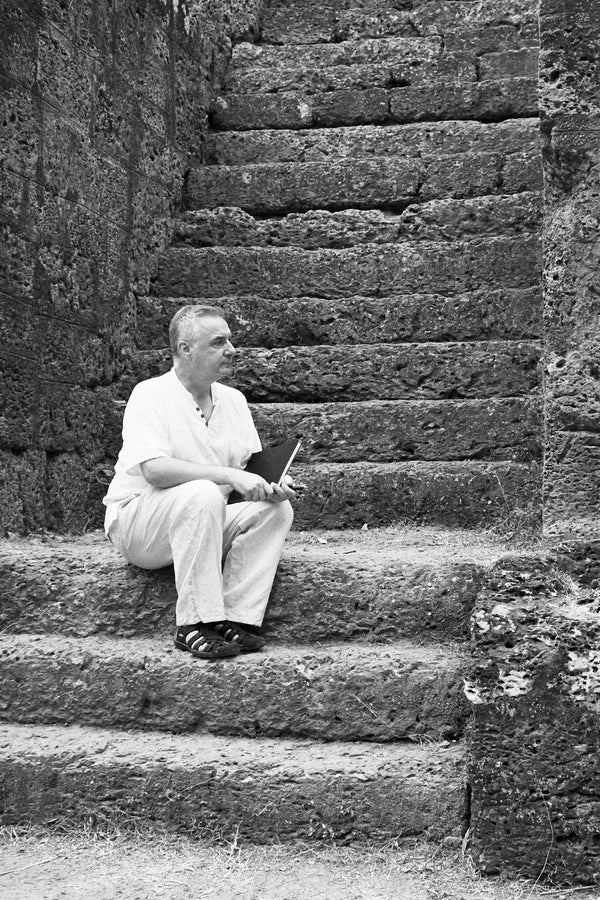
Join My Studio Journal
Receive occasional letters from my studio in Siem Reap—offering a glimpse into my creative process, early access to new fine art prints, field notes from the temples of Angkor, exhibition announcements, and reflections on beauty, impermanence, and the spirit of place.
No noise. No clutter. Just quiet inspiration, delivered gently.
Subscribe and stay connected to the unfolding story.
